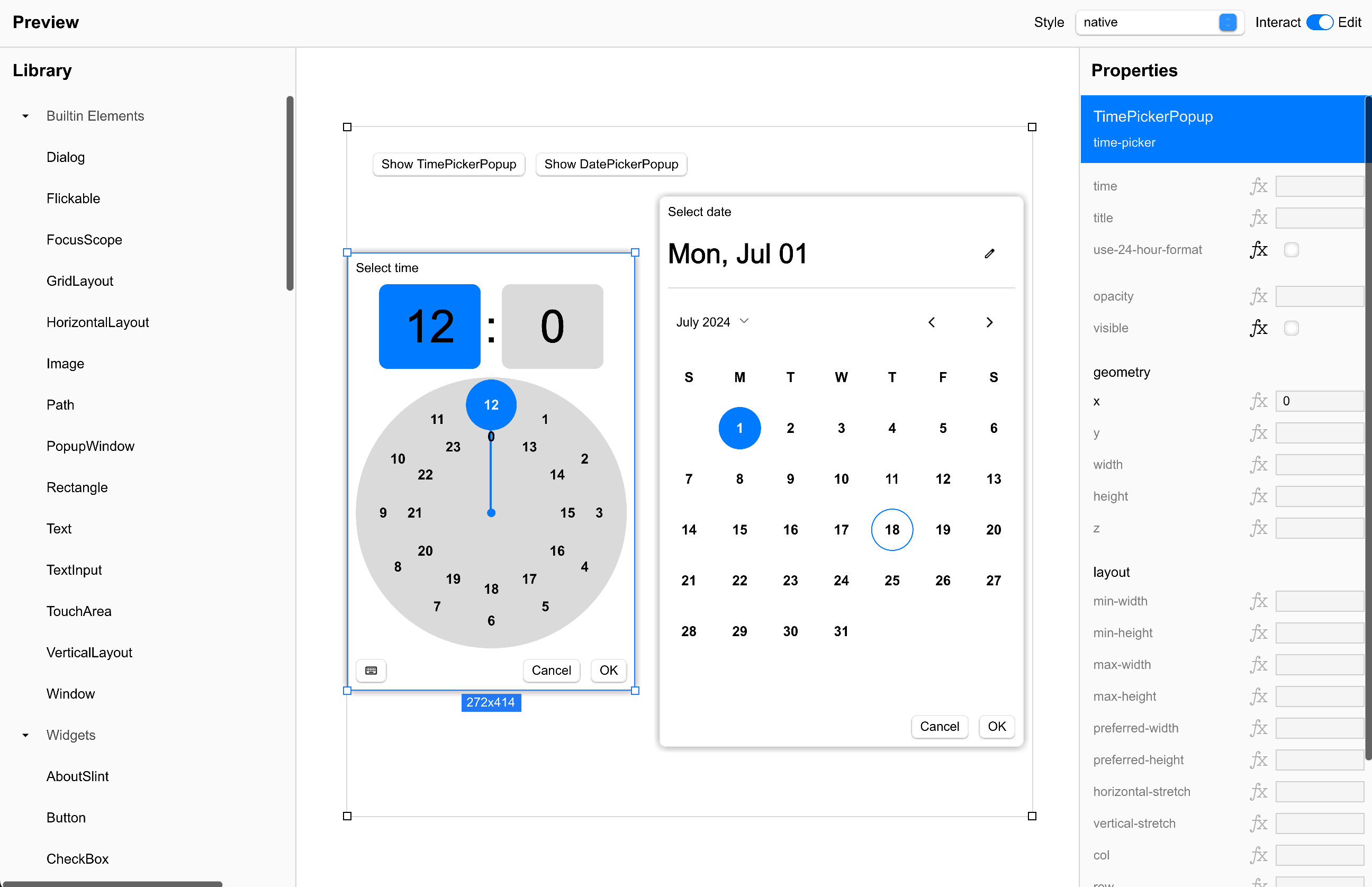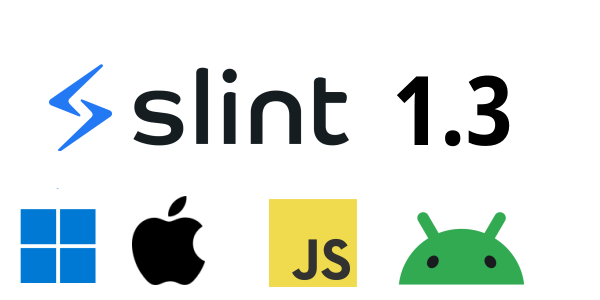Tobias Hunger
A Slint fanboy from Berlin.
- 5 Posts
- 24 Comments

 2·3 months ago
2·3 months agoThose evil companies block random users, just because their government made some laws about it.

 41·4 months ago
41·4 months agoI’d go for open source projects. They usually have bigger code bases and good practices, that they enforce on their contributors with code reviews and such.
It’s a good way to get feedback on your code, something miss out on personal projects and get much less of in university and corporate projects.

 1·4 months ago
1·4 months agoGithub login does not help much… devs are on github, not on random forgjo instances. That’s where they see your project. Github is also where they put their fork of your project when they play with it. They will write comments using github markdown and won’t care whether that renders correctly or not in your forge.
And it is where they will report issues and open a PR. It is annoying, but it is how it is. When you ask them to open the PR elsewhere they complain sinde they need to set up an account there and copy ssh key and similar things. You need a very dedicated contributor to go through with all that… especially if it is just a few lines of drive-by fixes.

 4·5 months ago
4·5 months agoI never said that you can not run a project elsewhere, my point is that you will get way more interaction on github.
Try pushing your project to github and compare the interactions you get from both forges.

 1·5 months ago
1·5 months agoThat unfortunately requires setting up email… I have not bothered doing so on my boxes in a very long time.

 16·5 months ago
16·5 months agoThe biggest factor to me is developer attention. I had a project on gitlab and pushed a README.md with a link to the gitlab instance into github. I got about 10 times more reactions from github, incl. PRs (where the person had grabbed the code from gitlab and did a PR on github anyway) – even in this setup. Mirroring a project to github tilts that even further.
Not being present on github means a lot less users and contributors. As long as that stays this way there is no way around github.
I hope federated forges can move some attention away from github, making other forges more visible… but I am not too optimistic :-(

 12·5 months ago
12·5 months agoThe blocking certain countries is a US legal thing. It effects any forge in the US and probably in more areas close to the US. As soon as a forge gets big enough to show up on the radar of government orge they will need to do similar blocking.
You can not really blame github for that part.

 10·6 months ago
10·6 months ago“I find it surprising that the writers of those government documents seem oblivious of the strengths of contemporary C++ and the efforts to provide strong safety guarantees,”
My impression is that they are very aware of the state of C++ and the efforts to provide strong safety guarantees. That’s why they keep raising the pressure.

 91·6 months ago
91·6 months agoThat depends a lot on how you define “correct C”.
It is harder to write rust code than C code that the compiler will accept. It is IMHO easier to write rust code than to write correct C code, in the sense it only uses well defined constructs defined in the C standard.
The difference is that the rust compiler is much stricter, so you need to know a lot about details in the memory model, etc. to get your code past the compiler. In C you need the same knowledge to debug the program later.

 113·6 months ago
113·6 months agoThat depends on how you decide which bucket something gets thrown into.
The C++ community values things like the RAII and other features that developers can use to prevent classes of bugs. When that is you yard-stick, then C and C++ are not in one bucket.
These papers are about memory safety guarantees and not much else. C and C++ are firmly in the same bucket according to this metric. So they get grouped together in these papers.
There is no regulation at this time. There may not be regulation ever. Before there is any regulation we will see nudging into the “right” direction. Suggesting that companies define a memory safety roadmap could be considered as the very first nudge, or maybe not:-)
All I wanted to say is that ignoring the possibility of regulation in such a text seems a bit short-sighted to me.
Governments triggered this entire discussion with their papers and plans to strengthen cyber defenses. The article states that some experts ask for our industry to be more regulated in this regard.
I am surprised that possible regulations are not even listed as a factor that in the decission to stay with C++ or move to something else.
Sure, COBOL is still around after decades, but nobody ever tried to pressure banks into replaceing that technology AFAICT.

 2·9 months ago
2·9 months agoThe quote above covered exactly what you just said: “yet were also more likely to rate their insecure answers as secure compared to those in our control group” at work :-)

 32·10 months ago
32·10 months agoI am looking forward to follow up articles like “woodworking as a career isent right for me”, “bookkeeping as a career isent right for me” and the really enlightening “any job sucks when your boss is shit”.
It is damn hard to write tooling for C++ projects: There are no standard ways to do anything, so you need to add lots of options just to cover a range of project configurations. Those add a lot of complexity very fast, which is unrelated to the actual task you want to solve.

 12·1 year ago
12·1 year agoThe problem is that you lose out on dev attention when moving away from github.
I moved my projects into github when placeholder projects literally containing a README with a link to the real repo only got way more interaction on github than in the real repository: More stars, more views, more issue reports and even more PRs (where the devs have obviously Cloned the repo from the actual repository but could not be arsed to push there as well).
If you want your project to be visible, it needs to be on github at this point in time:-(

 6·1 year ago
6·1 year agoThe basics are all the same:. memory, cpus and caches in between ;-)
But rust does approach many things very differently from C or C++. Learning those new approaches takes time and practice.

 271·1 year ago
271·1 year agoWatch out: That mindset is what got me into Rust in the first place!
I was so fed up with everybody drowning on about Rust that I thought I need to read up on it a bit so that I can argue against the hype. I am a seasoned C++ dev after all, I use a language that I picked because it allowed for robust and fast code. What could Rust add on top of that?
Well, I have a job working almost exclusively with rust now and do not plan to ever go back.

 1·1 year ago
1·1 year agodeleted by creator


If you could reliably write memory safe code in C++, why do devs put memory safety issues intontheir code bases then?
Even highly paid (and probably skilled) devs in the IT industry manage to mess that up pretty regularly. Even if it was: devs using memory safe languages make much fewer mistakes wrt. managing memory… so that tooling does seem to help them at least more than the C++ tooling helps the C++ devs.